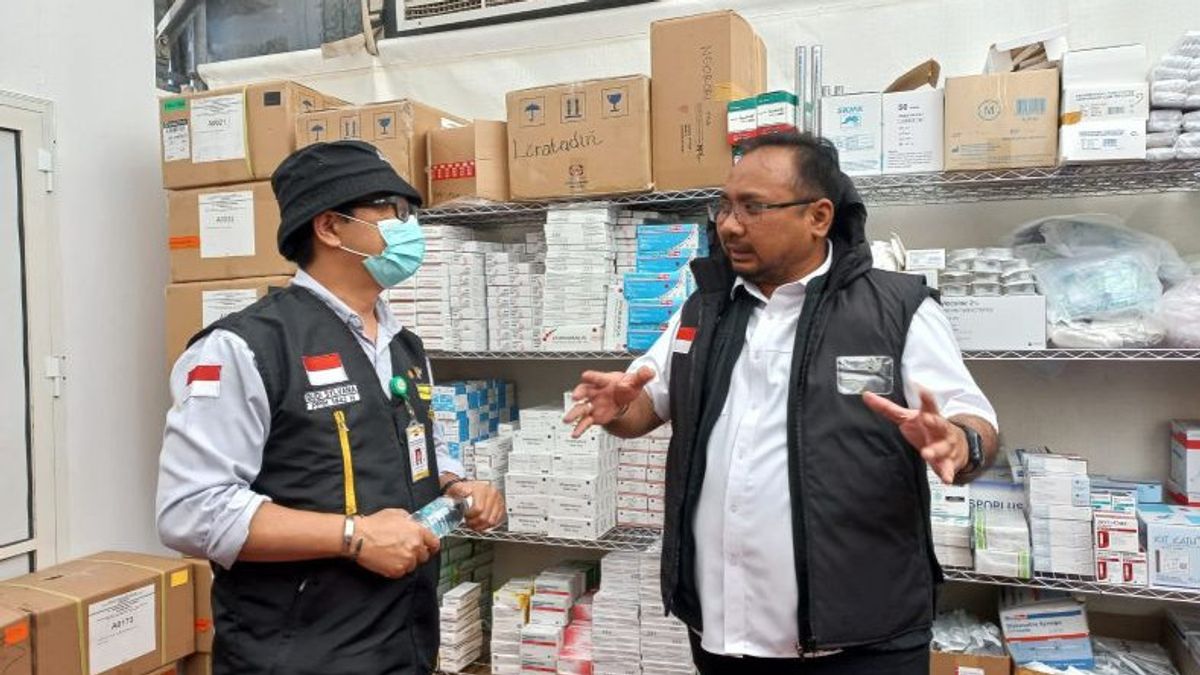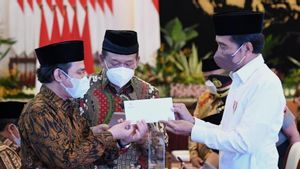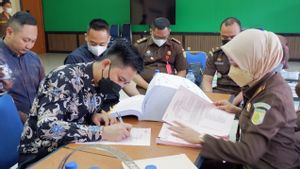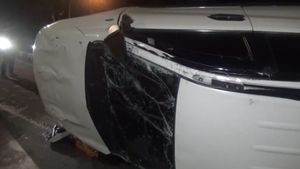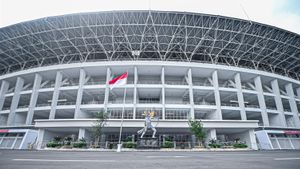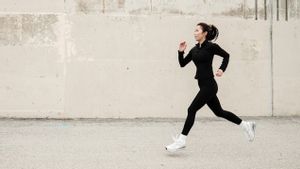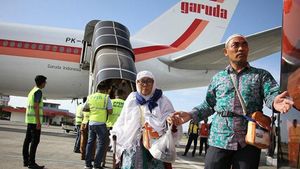MECCA - Minister of Religion Yaqut Cholil Qoumas admitted that he did not feel hot even though he was wearing a thick vest because the vest is an innovative heat stroke vest for patients from the Ministry of Health.
"It's like using air conditioning in clothes, we don't feel like we are in the middle of the desert. I will try this for all officers. Overall, this is really good," said the Minister of Religion while reviewing the tent in Mina, as reported by ANTARA, Wednesday, July 6.
According to the Minister of Religion, who is familiarly called Gus Men, the black vest with a hoodie is very helpful in the very hot weather situation in Saudi Arabia.
"This will be very helpful. Next year will be seriously considered for all hajj officers," said Gus Men.
Moreover, the average weather in Mecca reaches 44-45 degrees Celsius and it is estimated that the hot weather will last for the next few years.
In the 2022 hajj season, the Ministry of Health will utilize carbon cool technology which is designed to be a temperature-reducing vest for handling heat stroke cases for pilgrims in Arafah, Muzdalifah, and Mina (Armuzna).
The vest will also be used by health workers serving in the Armuzna region as a precautionary measure.
A total of 10 jackets have been prepared for officers, while 20 jackets have been prepared for first aid for heat stroke pilgrims.
VOIR éGALEMENT:
The team of doctors from the Indonesian Hajj Health Office (KKHI) Mecca, as well as the research team Dr. Rr Suzy Indharty MHA MKes SpBS(K) - a neurosurgeon specialist consultant brain tumor lecturer at the Faculty of Medicine USU Medan in collaboration with a lecturer at the Faculty of Engineering UNS Solo, said that the measurement of temperature and The congregation's vital signs is a parameter in the use of the vest.
"The temperature is measured continuously, and will be stopped after the patient's temperature drops to 38 degrees, and then another standard therapy is given," said Suzy.
Techno cool is used because it has a long cold resistance of up to 8-12 hours, much longer than the use of ice or ice gel, does not melt quickly, and does not get wet.
The patient will be put on a vest complete with a decker to dampen the sensory nerves that are abundant in exposed parts of the body that are exposed to the sun, namely the arms, thighs, and calves. In an emergency, techno cool can be directly attached to the patient's body.
The English, Chinese, Japanese, Arabic, and French versions are automatically generated by the AI. So there may still be inaccuracies in translating, please always see Indonesian as our main language. (system supported by DigitalSiber.id)
